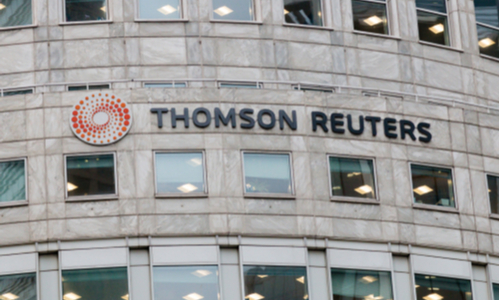Thomson Reuters Enterprise Centre was unable to escape antitrust counterclaims on Tuesday brought by Ross Intelligence Inc., a competing legal research service, in a copyright battle in Delaware federal court.
Judge Leonard P. Stark found that Ross provided sufficient evidence to make a “tying” claim under the Sherman Antitrust Act against Reuters, which owns the legal research service Westlaw.
Ross argued that Reuters and Westlaw “unlawfully tie their legal search tool to their public law database to maintain their dominance in the overall market for legal search platforms.”
Under a tying arrangement, consumers can only buy a product on the condition that they purchase a different product they don’t want from the same seller.
Reuters said that its legal search tool has never been sold separately from its public law database and is therefore the same product.
But Stark wasn’t convinced, finding that Westlaw’s database was sold in stand-alone books for decades before the invention of search tool technology. Third parties have also allegedly sold law databases as separate products, the judge said.
Ross also sufficiently alleged that Reuters’ licensing agreements with customers is “restrictive” and “does not permit customers to unbundle” its two products, which also amounts to a tying arrangement.
However, the court dismissed Ross’ “shame litigation” claims, which said Reuters brought the suit for anti-competitive purposes, because it couldn’t show Reuters had improper intent to pursue the lawsuit.
Reuters first sued Ross in the U.S. District Court for the District of Delaware in 2020 for copyright infringement, alleging that Ross obtained copyrighted legal content from a Westlaw subscriber to develop its own competing product based on machine learning.
Want more news? Subscribe to CPI’s free daily newsletter for more headlines and updates on antitrust developments around the world.

